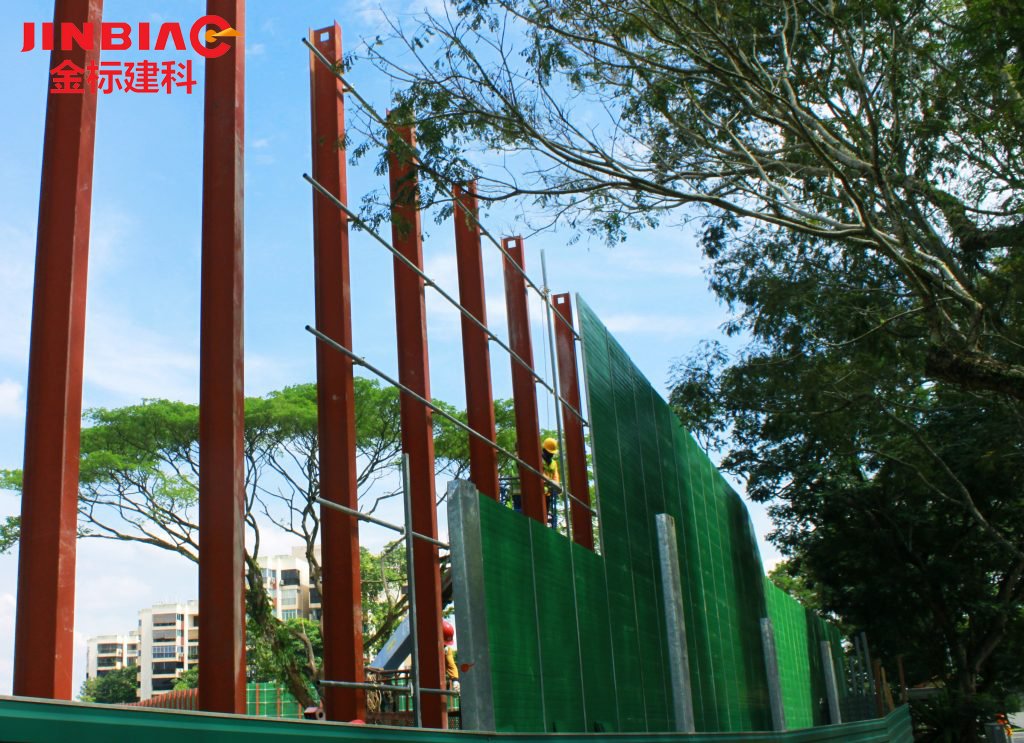When a place is filled with unwanted sounds, we describe it to be noisy. However, how is noise defined? And how are Noise Barriers can be installed to reduce noise level?

Noise is an acoustic event that occurs due to the mingling of non-harmonic vibrations or unwanted sounds. These sounds play simultaneously and are unpleasant to the ears. Experts also describe noise to be a daily terror, since it can damage our ability to hear, either temporarily or for a longer period of time.
Noise is known to harm not just the ears, but the entire human body and one’s mental health. It elevates blood pressure, triggers depression and stomach ulcers, especially when one is exposed to a noisy environment for a long time. Being exposed to a noisy environment for a long time can also make it difficult to communicate effectively, create fear, make one aggressive, disrupt creative activities, induce fatigue and stress, distort sleeping patterns, and reduce the value of rest.
Where sound barriers come in
Noise cannot always be prevented from occurring, but the levels of its effects can be reduced. Indeed, you cannot always turn it off, since the contributing sounds come from different sources.
This is where noise barriers come into play. They reduce the effects of unwanted sound by reflecting and absorbing sound waves before these can penetrate into the area being protected.
Sound barriers in Singapore are common in highways and roads where traffic causes a lot of disruptive sounds on a regular basis. These are also installed in industrial facilities, such as factories or manufacturing plants, or even industrial buildings.
Among the common uses of noise barriers are:
1. Preventing bad noise from spreading around the premises.
Sound barriers in Singapore are often used to prevent the spread of unwanted sounds around a given area. For instance, a production plant is situated at close range to an educational facility. The sounds its generators make can distract the classes being held in the school, so barriers are put up to prevent the noise from being heard in the school premises.
2. Trapping the noise between the source so it won’t spread to the environment.
Noise barriers in Singapore are also used to enclose the distracting and non-harmonious sounds that may affect neighbouring facilities.
Trapping the noise not only reduces its adverse effects on those exposed to it. It also ensures respect and privacy, for the noise generated by the source is not intrusive to other environments.
3. Sound barriers are used to partition areas where sounds from different sources should not be combined.
In mixed-use spaces, such as building lobbies and conference halls, it is common for different events to be held at the same date and time -in the same venue. While space cannot always be permanently partitioned, noise barriers can help do the job even for just a number of hours.
Noise barriers can separate stores and commercial establishments from each other for they not only act as fences; they ensure the communications security of these establishments as well.
Perks of using noise barriers
Noise barriers can significantly improve the quality of the sounds we hear on a daily basis. People become more productive when they are free from the unnecessary and unwanted noise that they hear in their surroundings.
Since it is becoming a staple in commercial and industrial businesses, people are starting to look into having noise barriers in their properties. Some homeowners likewise look into having noise barriers installed to accommodate the needs of their aging family or relatives in terms of keeping their hearing abilities intact.
